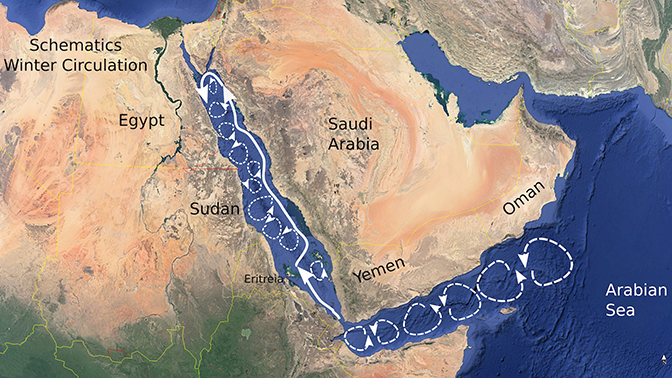



 Brecht Jonkers
Brecht Jonkers The Saudi-led invasion of Yemen launched in March 2015 continues to terrorise the population of this impoverished but mighty land. The deliberate use of carpet bombing, artillery shelling of entire towns and cities, a near total naval, aerial and land blockade imposed on the country, and seizing much-needed food and fuel shipments on their way to Yemeni ports, has resulted in over 100,000 deaths. The vast majority of casualties are Yemeni civilians.
Aside from the immediate loss of life resulting from fighting, nearly five years of war have affected Yemen in several other ways. The destruction of health and hygiene infrastructure, along with lack of medicine, has led to devastating outbreaks of cholera, diphtheria, and even non-endemic diseases such as dengue fever. Saudi bombings of fishing boats and wharfs has worsened the already rampant famine in the Yemeni countryside. And the destruction and seizing of petroleum fields and oil transportation vessels has led to the transport and industry sector nearly completely shutting down.
As of December, Saudi Arabia is still illegally holding at least 13 transport ships after blatant acts of piracy. These vessels, carrying much-needed food and fuel to the port of Hodeydah, had been inspected by the United Nations and given permits after ascertaining that they carried no weapons or illegal materials. Yet in blatant disregard of international law, that is more commonly associated with the Zionists, the Wahhabi kingdom attacked and seized the ships, holding the crew hostage. The only reason for this piracy, which has been entirely ignored by the international community, is ensuring that no food or oil reaches Yemen. While the people of Yemen slowly starve to death, their food is kept mere miles away at sea, some ships having been held for over 40 days.
And yet another disaster lurks around the corner. The oil storage vessel Safer, a massive floating storage and offloading site for petroleum, has been laying unattended in the Red Sea since the start of the Saudi invasion. Nearly five years of neglect have led to significant corrosion and structural damage to the vessel, with experts and the Yemeni Ministry of Water and the Environment warning of an environmental disaster of unseen proportions.
The Safer, reported to be the third-largest floating oil terminal in the world, currently contains over one million barrels of petroleum. Despite repeated calls for letting professional personnel to board and repair the ship, the Saudis have categorically refused to let the vessel be checked. Experts have named the vessel a “floating time bomb,” pointing out that if Safer does explode, it will likely release four times the amount of oil into the sea than did the 1989 Exxon Valdez disaster.
Yet, despite the horrible onslaught that Yemen has had to endure since 2015, there is no sign of surrender or fear among the mujahidin supporting the National Salvation Government. Under the leadership of Ansarullah and its allies, the tribes and urban population of Yemen have risen, time and again, to strike back against imperialist invasions.
In September, the defenders of Yemen sent a shockwave by striking the largest oil refinery complex in the world, bombing the facilities of Abqaiq and Khurays with indigenously-manufactured drones. But Yemen’s resistance did not end there. In a matter of just one week in December, the resistance shot down no fewer than seven unmanned aerial vehicles of the Saudi-led invaders, as well as state-of-the-art US-made Apache attack helicopter. The fact that a people surrounded on all sides and suffering from a war imposed on them by the most advanced military in the Arabian world, has developed the means to shoot down some of the most high-tech military hardware in the world, is truly an inspiration to the oppressed people of the world.

In an official statement, Brigadier General ‘Aziz Rashid, who is responsible for developing Yemen’s defence capacities, vowed that the Republic would be able to shoot down and neutralise up to 90% of all Saudi aircraft in the year 2020. In the words of the general, the Saudi invasion depends for at least 85% on air superiority, which means the newly-developed Yemeni air defence systems are a huge blow to the invasion force.
The shockwave of fear that Yemen’s resistance sent through Riyadh should not be underestimated. In late-September, Saudi Arabia opened informal but direct negotiation with representatives of the National Salvation Government in Jordan. The fact that this came in the same month as the total devastation of Saudi Arabia’s oil sector by Yemeni retaliations, is not coincidental. In early-October, direct video link negotiations between top military officials from Yemen and Saudi Arabia kicked off as well. One of the first demands the Saudi brass reportedly made was that Yemen would not publish evidence of its highly successful Operation “Victory From God” in Najran province, which resulted in thousands of Saudi forces being killed or captured. The Yemeni government categorically rejected this request.
Negotiations between Riyadh and Sana‘a are apparently of such serious nature that it is causing huge worry to the puppet Hadi regime. ‘Abd al-‘Aziz al-Jabbari, advisor to self-declared “president” Hadi, phrased it as follows, “The legitimate government has remained in the dark about what the Saudis are negotiating with the Houthis,” adding that a Saudi withdrawal from Yemen “would be a grave mistake and deeply regrettable.” It seems that the Hadi clique is starting to feel the existential threat that comes from being an imperialist puppet.
The United Arab(ian) Emirates (UAE) has already nearly completely withdrawn from Yemen following threats against its glass towers coming from the National Salvation Government. While the Southern Transitional Council and Security Belt mercenary militias still receive Emirati funding, Abu Dhabi has almost completely ceded nominal control over the strategic areas in the south to Riyadh. But the Wahhabi kingdom itself is also increasingly looking for a “graceful way out,” with their main concern reportedly being the fear that Yemen may look for retribution. With the Saudi-held territories of Najran, Jizan, and ‘Asir being part of Greater Yemen, Riyadh may even fear for its control over this area in the future.
It is never wise to rely too much on the Saudi kingdom to keep its promises. Top Yemeni political figure Muhammad ‘Alial-Hithi warned not to be too optimistic about the Saudi desire for peace stating that the situation on the ground is still far from positive. In October alone, the Saudis carried out over 7,600 attacks on Yemen. Yet for all the horrible destruction that continues to be inflicted on the blessed land of Yemen, it is undeniable that Yemen has the upper hand vis-à-vis the pleasure-loving Bani Saud.
